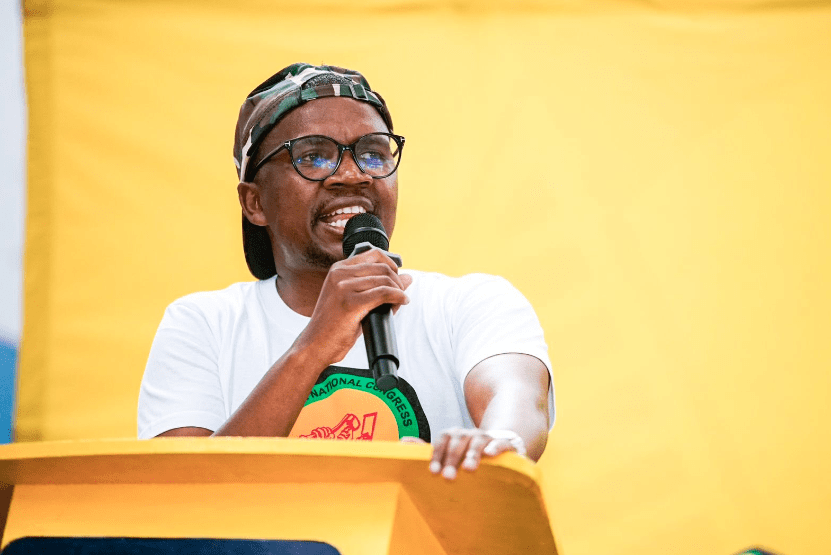The Ingonyama Belief Board (ITB) spent thousands and thousands of rands irregularly on luxurious autos, authorized charges and tax payments for the late Zulu king Goodwill Zwelithini kaBhekuzulu, funding his life-style from levies collected on land beneath its management.
Though the monarch was entitled to make use of 5% of the income raised on actions associated to his work because the board’s sole trustee, its former chairperson, Jerome Ngwenya, paid for weddings, lodging and transport for members of the royal household, which the Ingonyama Belief was not entitled to fund.
Not solely was a R1.55 million South African Income Service (Sars) invoice— together with penalties — incurred by the late king paid from belief funds in 2019, however a second cost was made to the tax authority for R459 000 on his behalf the next yr.
The ITB additionally paid Zwelithini’s tax invoice of R833 512.90 in February 2021 as a part of a cost plan organized with the income authority by Ngwenya.
The ITB took care of his vehicular wants too, forking out R2.9 million on a BMW M760 LiXDrive for him in 2019.
That is regardless of the monarch being funded on the time to the tune of greater than R60 million by the KwaZulu-Natal authorities, which additionally supplied him with official autos and safety.
The BMW changed an earlier mannequin bought for the king in 2015 at a value of simply over R2 million.
The primary file of the ITB shopping for the king’s autos is in April 2010, when it purchased him a R1.03 million Lexus LX570.
Ngwenya additionally dedicated the belief to paying greater than R9 million in authorized charges run up by the present king, MisuZulu kaZwelithini, in his succession battle earlier than his recognition by the federal government in March 2022.
The ITB has no finances for this.
The startling proof of “maladministration” on the a part of Ngwenya — and an array of supporting receipts and inside memorandums — is contained in papers submitted to the Pietermaritzburg excessive courtroom by the present ITB chief govt, Vela Mngwengwe.
Mngwengwe’s revelations are the primary time the funds of the belief, set as much as administer historically managed land on the king’s behalf, have been made public.
Underneath his tenure, Ngwenya had refused to submit its monetary statements to the Auditor Common of South Africa or to parliament, as a substitute accounting just for the R20 million a yr the ITB will get from the division of agriculture, land reform and rural growth.
The belief collects about R90 million a yr from business, agricultural and mining leases it raises from land beneath its management, however the element of its expenditure has so far not been made public.
The ITB has been beneath fireplace from the auditor normal and parliament over Ngwenya’s stance, which had successfully blocked oversight on the funds it raised and spent.
The brand new board is defending an software by Prince Mbonisi Zulu, the uncle of MisuZulu, who has requested the courtroom to put aside the elimination of Ngwenya by the king and the appointment of a everlasting board in Might this yr by Agriculture Minister Thoko Didiza.
Mbonisi needs Ngwenya and the previous board reinstated and has requested the courtroom to cease the ITB from making any funds on behalf of MisuZulu — together with his authorized charges within the succession battle towards Prince Simakade and different would-be ascendants to the throne.
Based on Mbonisi, the courtroom wants to stop the ITB from making funds of any form till after the courtroom has dominated on the succession matter, which was heard lately within the North Gauteng excessive courtroom and by which judgment was reserved.
In his responding affidavit, Mngwengwe denied any impropriety by the brand new board and as a substitute listed violations of its spending standards by Ngwenya and the earlier board.
Ngwenya was fired by the king earlier this yr after an exposé by the Mail & Guardian of a doubtful R41 million funding he made utilizing belief cash via an funding firm he arrange in 2019.
The cash has not been recovered.
Mngwengwe instructed the courtroom that the funding components contained within the rules governing the belief stipulated that 75% of income went to conventional authorities; 10% to the sitting inkosi; 10% for the working of the belief and board and 5% to the king, for use within the furtherance of his duties because the trustee.
Not one of the disbursements have been meant to be for private use, however moderately on bills incurred whereas doing the work of the belief. Spending was additionally restricted to actions outlined when it comes to the belief rules.
However the king may additionally make use of funds for gadgets akin to medical help cowl, funeral cowl or “every other profit deemed obligatory”, supplied that this was not already coated by one other authorities division.
Mngwengwe stated the present board was “confronted with plenty of challenges which have been inherited from its predecessors” and which have been a results of “maladministration” by the previous board.
Mngwengwe stated the board’s induction in June needed to be “transformed into an emergency preliminary assembly of the board” due to excellent authorized charges owed to Strauss Daly Attorneys, who had represented Misuzulu in defending his succession.
The king had determined to vary attorneys and the corporate had been refusing to launch his file till he had paid his excellent stability of greater than R6 million.
After investigating, the board found that Ngwenya had signed an enterprise, on its behalf, to “elevate and gather funds” to cowl any invoice for the king’s authorized charges offered to the belief by the corporate.
“It was unclear on the time how the previous board or chairperson may bind the belief for money owed of the ingonyama [king] that didn’t relate to any of the bills permitted when it comes to the disbursement coverage of the belief,” Mngwengwe stated.
“Nevertheless, the board was positioned in a precarious place as a result of its predecessors had made an enterprise on the energy of which the attorneys relied on for pursuing the cost of their charges from the belief.”
Mngwengwe stated that they had been pressured to achieve a settlement settlement with Strauss Daly for the authorized charges and had paid R1 million as a lump sum, and had dedicated to 26 month-to-month funds of R205 246.10 to cowl the excellent quantity.
Based on correspondence and invoices submitted to the courtroom, the ITB additionally paid R3.09 million to Strauss Daly in August 2022, along with the settlement, which totalled R6 282 000.
Mangwengwe stated cash could be taken from the 5% of income allotted for initiatives undertaken by the king, who had been knowledgeable that there could be no different funds made on his behalf throughout the 26-month interval.
There could be no additional cost of authorized charges.
Mngwengwe stated the brand new board was certain by agreements made previous to their appointment, “one of many unlucky challenges inherited by this board” from the sooner board.
The brand new board had grow to be conscious of the “regarding” method by which Ngwenya’s board had operated, notably with regard to funds and disbursements.
It had found “many cases” by which funds had been made for providers not coated by ITB insurance policies.
These, together with transport and lodging for conferences of the royal household, funds for amabutho (age units or regiments) and the acquisition of two luxurious automobiles.
“Additional and of higher concern, there have been plenty of funds made for lodging at resorts for members of the royal household, together with the ingonyama,” stated Mngwengwe.
Different members of the royal household had “benefitted from the funds for the belief”, together with Mbonisi, whose lodging had been paid for by the ITB when he travelled to Pretoria to ship a letter to the president.
“This journey was not a belief associated exercise, nor was it a permissible expense,” Mngwenge stated.
He stated the earlier board had been responsible of the form of conduct Mbonisi was alleging towards the present one, which had taken critical steps to deal with the maladministration it had uncovered.
Though there had been a historical past of Ngwenya authorising funds of a private nature for the royal household, the brand new board was not doing so and had “undertaken a clean-up course of” on the way in which the ITB and belief have been being run.
“It has been established by the present board that there’s a lengthy historical past relationship again to the times when the late king nonetheless lived, the place the previous chairperson would authorise funds and disbursements of a private nature to the advantage of the ingonyama, current and former, and the royal household,” he stated.
“The [board] deny that the present board are perpetuating this conduct, nonetheless [they] are certain to stick to contractual obligations and undertakings made by their predecessors till the suitable authorized steps might be taken,” Mngwengwe concluded
He didn’t say what these authorized steps will likely be.
Turning the demand by Mbonisi that the ITB be stopped from making funds, Mngwengwe stated the aid sought by Mbonisi “strongly leans in direction of usurping the legislated powers of the iTB and stand to interdict the train of their legislated features”.
Any such order would stop the ITB from making funds on behalf of communities and conventional authorities and would have the “unintended consequence of prohibiting the board from making the mandatory disbursements as permitted in regulation”.
Mngwengwe stated that due course of had been adopted by Didiza when she appointed the present board as she had consulted the premier, the home of conventional leaders and MisuZulu.
Mngwengwe stated that the brand new king had initially assumed the function of trustee when he had relieved Ngwenya of his duties as his nominee, however had subsequently “modified his stance” and had nominated the present chairperson, Inkosi Thanduyise Mzimela.
Legally, the king can both tackle the function himself, or nominate any individual else to take action.
The brand new board was decided to convey operations in step with the regulation, and had taken “strong steps in correcting previous irregularities, notably on the problem of disbursements”.
“The current board has taken critical steps to make sure that it brings the belief again to a spot of compliance with laws and its insurance policies,” Mngwengwe stated.





















Discussion about this post